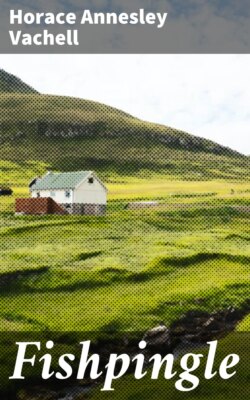Читать книгу Fishpingle - Horace Annesley Vachell - Страница 3
На сайте Литреса книга снята с продажи.
PREFACE
ОглавлениеTable of Contents
A Romance of the Countryside needs no preface. But underlying the adventures and misadventures of the story is an obvious purpose, and the importunities of any purpose, if denied expression in the main narrative, do press forward, with a justifiable relevance, when that narrative is completed. I could wish that it had been possible to deal with my theme as it will present itself after the war, when the position of the country gentlemen of this kingdom is likely to be even more poignant than in pre-war days. It seems to me almost certain that the type of man whom I have endeavoured to portray faithfully in these pages will become extinct unless he and his justify their claim to existence by dealing drastically with the problem that confronts them, a problem far more difficult of solution than it was four years ago. If the men who own land, and little else, wish to keep that land, they must make it pay by the sacrifice of much they hold dear; they must abandon their deep ruts and take the high-road of progress. What is needed jumps to any observant eye—intimate knowledge of a difficult subject. The old dogs won’t learn the new tricks. But their sons must learn them, if they wish to inherit the family acres. I am of the opinion that it will be a bad day for England when the Squires are scrapped. If they are scrapped, it will be their own fault. Heirs to many acres cannot, in the future, pass the most valuable and fructifying years of their lives in crack regiments, or anywhere else. They must stick to the land, and concentrate undivided energies upon it. No man who has studied agricultural conditions at first hand in France, for example, will deny the fact that even thin, sterile soil can be made productive. To achieve triumphantly such a task postulates the exercise of qualities which insure success in any other business—economy, patience, fortitude, and common sense. The big industrial concerns are owned and managed by experts. Agriculture—the backbone of England—is in the hands, for the most part, of amateurs. Some large farmers may be cited as exceptions, but the landowners, the smaller farmers and the labourers who till their allotments simply don’t know their business, and accordingly make a muddle of it. I do not believe that the allotment schemes, which sound so plausible, will prosper under the protection of Government, until the landowners and farmers first set an example of “how to do it.” The wastage everywhere is appalling. Why is it that Scotch farmers, confronted with greater difficulties as regards soil and climate, are able to pay so much higher wages than English farmers? Because they are thriftier and more intelligent. But you can’t raise man’s intelligence by giving him land of his own, and then telling him to go ahead and prosper. Much more is wanted.
I have spoken of the necessity of sacrifice. The Squires will have to give up certain luxuries, such as a season in London, foreign travel, and crippling allowances to idle sons. But sport should remain their inalienable possession if they pursue it as a pastime and not as the principal business of their lives. Hunting, shooting, and fishing are national assets within reasonable limitations. Long may they flourish! It is not the Squires who have imposed the tyranny of sport upon their people, but the plutocrats. Much undiluted nonsense has been written against hunting and shooting mainly by men who are grossly ignorant of their subject, bent upon citing extreme instances, which, when investigated, turn out to be absolutely exceptional. Editors of influential papers still encourage these gentlemen of the pen to attack dukes because deers forests in the Highlands are not planted to potatoes! Why not try oranges or bananas? Triumphant democracy still believes that it is more sportsmanlike to walk up birds and “tailor” them, instead of killing them as they are driven to the guns, flying fast and high overhead.
When this theme of the countryside first presented itself to me, I was tempted to take, as a type, what is called a “bad” landowner, one who neglects wilfully his responsibilities and duties. Unhappily, there are many such. But these petty tyrants are irreclaimable. Unquestionably they will be scrapped. And the sooner the better! Hope of salvation lies with men like Sir Geoffrey Pomfret, true lovers of the soil, but helplessly ignorant of its potentialities. In this category are not included the very few magnates who can and do employ experts to manage their estates. These few must make it their business to spread the knowledge for which, by costly experiments, they have paid a tremendous price. They, and they alone, are really qualified and able to put men upon allotments and demonstrate what intelligence and ingenuity can accomplish.
A last word. I wrote a book and a comedy entitled “Quinneys’.” The book appeared first and then the play. Some critics took for granted that the play was a dramatization of the novel. They happened to be wrong. The comedy was written before the book. In this case, my comedy “Fishpingle” was produced at the Haymarket Theatre in 1916. The novel will appear in 1917. I leave it to the same critics to guess which was written first.
HORACE ANNESLEY VACHELL.
Beechwood,
April, 1917.
FISHPINGLE
